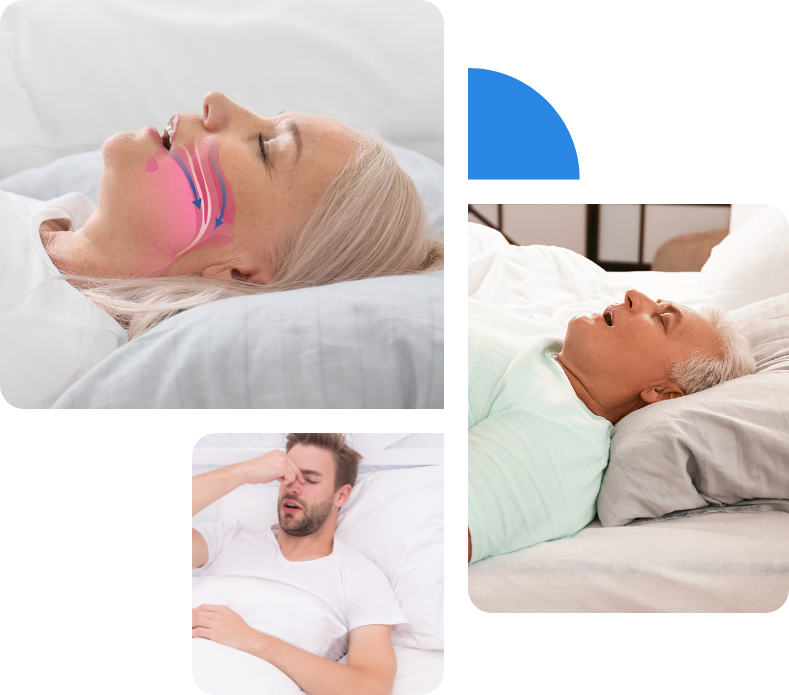
Do I have sleep Apnea?
As someone concerned about your sleep health, you might be experiencing symptoms like
loud snoring, waking up with a dry mouth, morning headaches, episodes of stopping breathing
observed by others, excessive daytime sleepiness, difficulty concentrating during the day,
feeling irritable, or waking up to pass urine frequently. Remember, timely diagnosis and treatment
can significantly improve your quality of life and health.
Several factors could be contributing to your condition:
-
Physical Structure: Certain physical characteristics, such as being overweight, having a thick neck, or a narrow airway, can increase the risk of sleep apnea.
Age: Sleep apnea is more common in adults, especially older adults, though it can occur at any age. -
Gender: Men are more likely to have sleep apnea than women, though the risk for women increases after menopause.
-
Family History: Genetics can play a role. If sleep apnea runs in your family, you may be at higher risk.
-
Use of Alcohol, Sedatives, or Tranquilizers: These substances relax the muscles in your throat, which can worsen sleep apnea.
-
Smoking: Smokers are more likely to have sleep apnea than nonsmokers.
-
Nasal Congestion: If you have difficulty breathing through your nose due to an anatomical problem or allergies, you're more likely to develop obstructive sleep apnea.
-
Medical Conditions: Conditions such as congestive heart failure, high blood pressure, and type 2 diabetes are associated with sleep apnea. Polycystic ovary syndrome, hormonal disorders, prior strokes, and chronic lung diseases like asthma can also increase risk.
